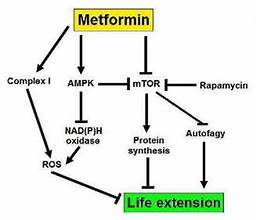
Creatine is a naturally occurring substance found in the body, primarily in muscle tissue. It plays a crucial role in providing energy for high-intensity, short-duration activities such as weightlifting, sprinting, and other explosive exercises. In recent years, creatine has gained popularity as a dietary supplement, particularly among athletes and bodybuilders. This article will discuss the benefits and risks of using creatine as a supplement.

Most adults, especially women, under-eat protein. Aim for 0.4–0.9 grams per pound of ideal body weight daily. A 150-pound adult needs about 60–90 grams per day (20–30 grams per meal). At 200 pounds, that’s 80–150 grams daily or 25–40 grams at 3–4 meals, depending on your goals.
Animal-based proteins are typically more complete and easier to digest. Choose organic, non-GMO, wild-caught fish, pasture-raised poultry, grass-fed beef, and pasture-raised eggs.
Plant-based options like lentils, hemp seeds, and quinoa can form a complete diet when combined thoughtfully. Vegetarians and vegans should eat a variety of plant proteins to meet amino acid needs.
Choose whole foods whenever possible. For protein powders, look for organic or grass-fed sources with minimal ingredients—no added sugar, colorings, gums, or “natural flavors.” Pure Paleo Bone Broth Protein, WheyCool Grass-Fed Protein, and Mikuna Chocho Plant Protein are excellent options.

Muscle synthesis is optimized when protein intake is spread evenly throughout the day—20–35 grams per meal. Start with a protein-rich breakfast to balance blood sugar, cortisol, and energy.
Before workouts, have a small snack with protein, carbs, and healthy fats—like apple slices with nut butter. After strength training, consume 20–30 grams of protein within 20–30 minutes to maximize recovery. Plan ahead so quality protein is available during this window.
Hormones and Aging
With age, hormones like growth hormone, testosterone, and estrogen decline, making muscle harder to maintain—but not impossible. Nutrients such as creatine, magnesium, vitamin D, and omega-3s support hormone sensitivity and muscle health. Resistance training naturally boosts anabolic hormones and signals the body to preserve lean tissue. Pairing consistent strength training with adequate protein amplifies results.
Your Longevity Organ
Think of muscle as your longevity organ. Supporting it means combining strength training, quality protein, restorative sleep, and stress management. Small daily choices compound over time.
Avoiding soy? Sensitive to dairy? Recovering from injury or surgery? Your protein needs will change throughout life. At your next visit, ask your CTW care team about an InBody composition scan to see where you’re starting and create a plan for your goals. Your team is here to help you build strength, resilience, and a foundation for lifelong health.












